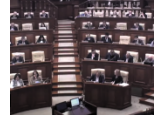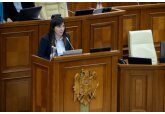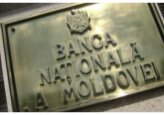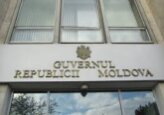
The degree of adequacy of the National Bank's official reserve assets remains at a high level – the NBM
According to the National Bank of Moldova (NBM), in particular, NBM’s official reserve assets as of November 29, 2024 amounted to $5 billion 281.02 million, decreasing by $318.85 million (-5.7%), compared to the situation as of October 31, 2024, when they amounted to $5 billion 599.87 million. As the NBM emphasized, this difference was due to a number of external and internal factors. Thus, during the last month, the decrease in official reserve assets was due to the NBM sales in the domestic interbank foreign exchange market, the decrease in the exchange rates of currencies constituting foreign exchange reserves against the US dollar, as well as the reduction of the level of required reserves in foreign currency. In particular, in late October and November 2024, the USD/EUR currency pair experienced a period of high volatility, mainly due to the US presidential elections and the uncertainty created in the financial markets. The elections results increased fears about possible changes in trade relations between the US and the European Union. At the same time, differences in the monetary policies of the US Federal Reserve and the European Central Bank, as well as investors' expectations regarding the pace of interest rate cuts and the difference in growth rates between the two economies, geopolitical tensions and volatility in energy prices increased the divergence between the US dollar and the euro. These factors contributed to the strengthening of the US dollar against other currencies and the depreciation of the euro, reflecting a sense of uncertainty and anticipation of important political and economic decisions. The EUR/USD exchange rate reached two-year lows in November, with the EUR depreciating by 2.56% against the USD at the end of November, compared to the end of October, and by 5.16%, compared to the end of last year. The impact of fluctuations in the exchange rates of major currency pairs had a negative impact on the value of official reserve assets, which is estimated at about $62.93 million. According to the NBM, such volatility, as well as the increased demand for foreign currency to import energy resources at rising prices, had a direct impact on the domestic foreign exchange market, increasing the negative gap between supply and demand in the local foreign exchange market. In these circumstances, to combat external shocks and limit excessive and cyclical volatility of the exchange rate, the National Bank intervened by net sale of foreign currency in the domestic foreign exchange market in the amount of $154.1 million. As emphasized by the National Bank, thus, the official reserve assets fulfilled their role in maintaining macro-financial stability, contributing to the strengthening of confidence in the national currency and the national economy as a whole. At the same time, according to the NBM decision on monetary policy of November 5, the norm of required reserves from funds attracted in freely convertible currency was reduced from 39% to 36% of the calculation base, starting with the application period of November 15 - December 15. As a result, there was registered $84.59 million decrease in funds on the accounts of required reserves in freely convertible currency. This reduced the official reserve assets, but increased the foreign currency liquidity available to banks. The National Bank said that it closely monitors the state of the foreign exchange market and, if necessary, can intervene to avoid excessive and temporary fluctuations in the exchange rate, in line with its main objective - to ensure and maintain price stability. For this purpose, the NBM has sufficient reserves. It is emphasized that the degree of sufficiency of the National Bank's official reserve assets, assessed by means of indicators applied in international practice, remains high and contributes to the economy's resilience to crisis situations and external shocks. // 09.12.2024 - InfoMarket







